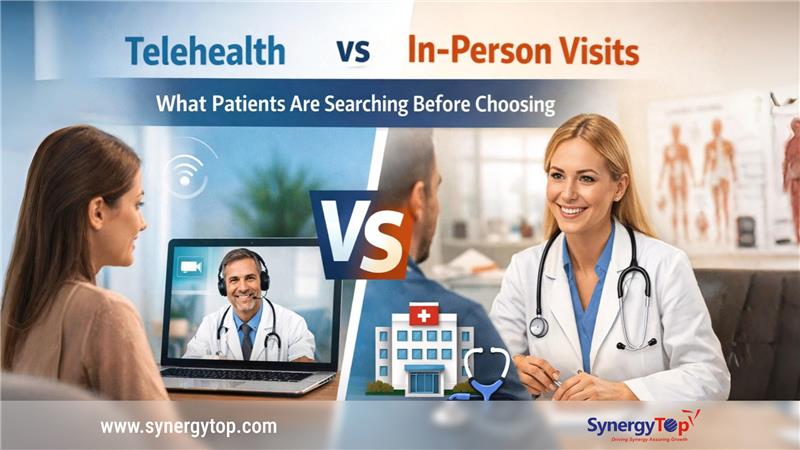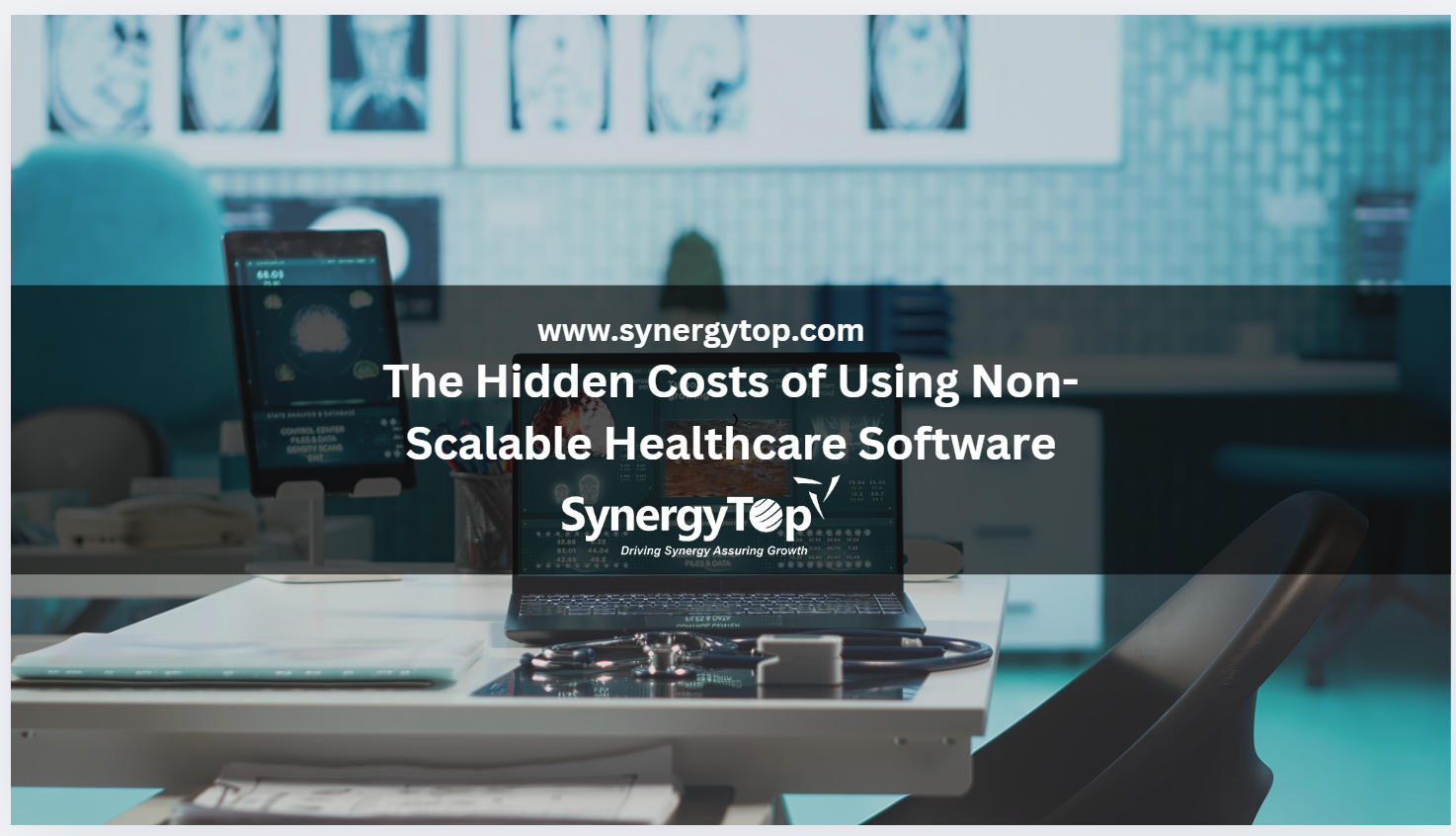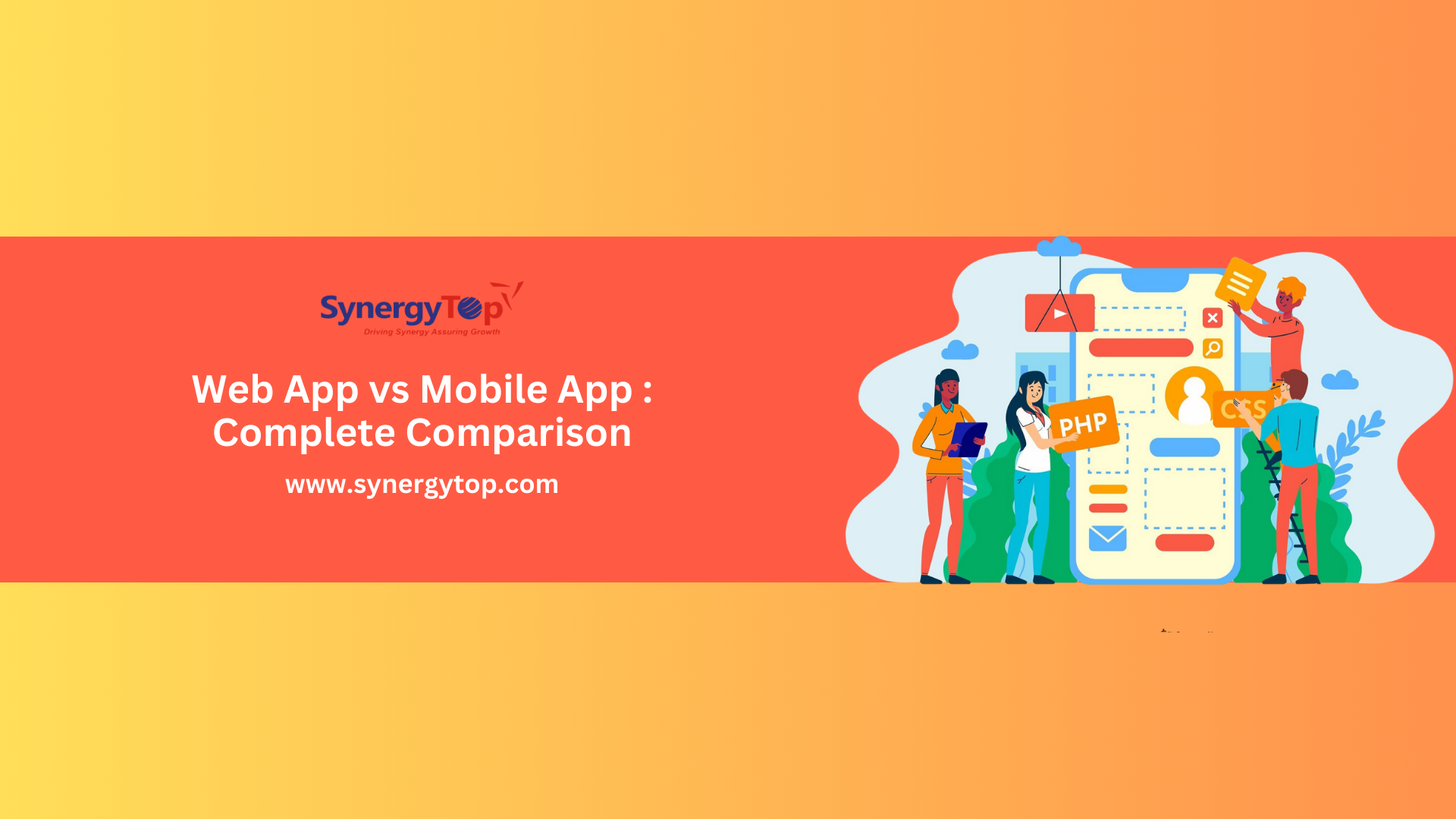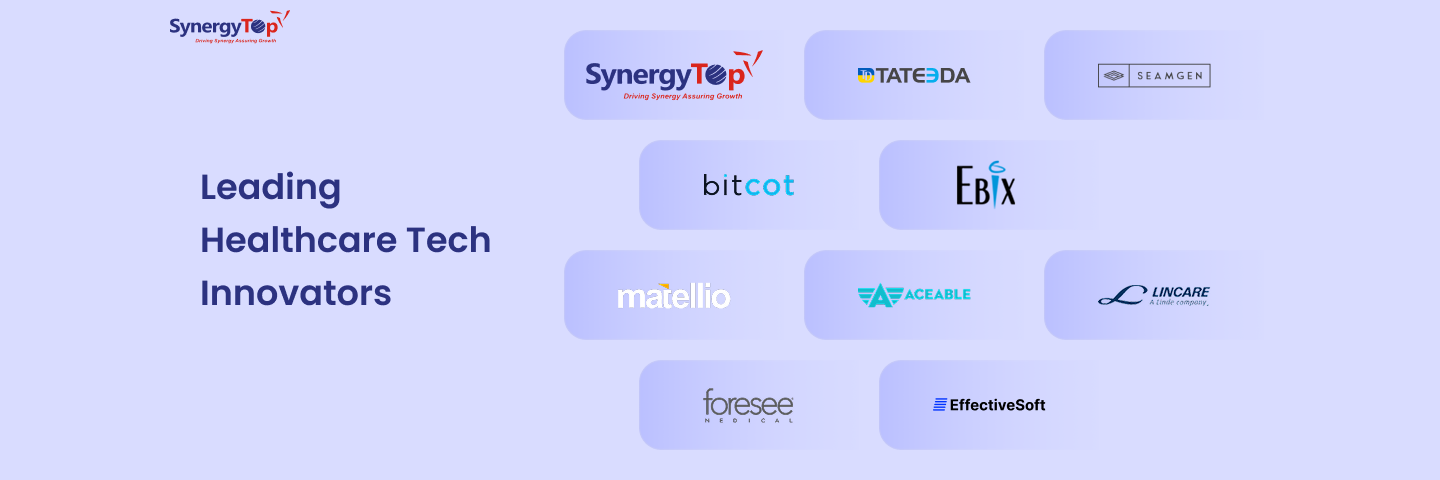Why trust this guide?
The team of healthcare software development experts at SynergyTop has delivered 10+ custom healthcare products in the past 10 years. We have collaborated with several more medical professionals, healthcare institutions, and clinics. Our team gives out healthcare software development cost estimates to several prospects and clients. So, we know what it actually costs – because that’s what we charge.
If you want to get an exact estimate without guesswork, schedule a call with our team and get a free, no-obligation estimate. Not ready to discuss your idea yet? No worries, read on to understand how healthcare software development costs are estimated and get an idea.
If you’ve Googled “healthcare software development costs”, you’d know that the results:
- Tell you that you can get healthcare software solutions developed for as low as $30,000.
- Will also tell you that the cost of healthcare software development can go up to $500,000.
See the following AI overview for example:

As unhelpful as this broad range sounds, it is true. As a custom healthcare software development company, we have worked on projects at both ends of this spectrum and in between.
But again, when you are making a critical investment for your practice or institution, you need specifics.
Custom healthcare software solutions can transform patient care, streamline operations, and boost efficiency. And understanding the cost commitment upfront is also essential.
In this, we aim to walk you through the process by which we arrive at the custom healthcare software development cost for any blog.
We will cover:
- Factors driving healthcare software development costs in 2025
- Cost of healthcare software development based on different types of software
- Impact of emerging tech on healthcare software development costs
- Working with custom healthcare software development companies
Dive in.
Why Healthcare Software Development Is Different
Before diving into costs, here’s something you should know:
Healthcare software development differs from general software development.
So you can’t benchmark costs against hiring a software developer (as outlined in this guide). Here’s why the two differ:
- Feature Complexity
Healthcare software solutions often involve intricate workflows. Think, managing patient records or integrating diagnostics, which is unlike simpler business apps. - Data Security Requirements
- Strict regulations like HIPAA and GDPR demand robust security measures, increasing development effort. These rules may not always apply to general software solutions.
- User Roles Vary
Healthcare systems must accommodate diverse roles (doctors, nurses, admins, and sometimes patients too). These roles also come with tailored permissions, unlike uniform business software. - Permission and Accessibility Differ
Granular access controls are critical to protect sensitive data and are a must in healthcare software solutions. This further adds to the complexity. - Integration with Medical Hardware
Many healthcare solutions require seamless integration with physical medical devices. Integrations like these are rarely needed in generic business software.
Thus, these factors elevate the cost of healthcare software compared to standard applications. Let’s understand the different factors affecting healthcare software development costs now.
Key Factors Influencing the Cost in 2025
Several variables shape the cost of healthcare software development. Understanding these can help you plan effectively and avoid surprises. Below are the primary factors, with practical examples.
- Complexity & Number of Features
A telemedicine platform with video calls and chat is simpler (and cheaper). However, integrating AI diagnostics or multi-specialty workflows would increase the cost.
- UI/UX Design Requirements
A patient portal with intuitive, accessible design for diverse users (e.g., elderly patients) demands more design effort than a basic admin dashboard.
- Level of Customization vs. Off-the-Shelf Components
Using pre-built EHR modules reduces costs compared to a fully custom system tailored to a hospital’s unique workflows.
- Technology Stack
Incorporating AI/ML for diagnostics or blockchain for secure data sharing increases costs. This is due to the need for specialized expertise and infrastructure.
Case Study: At SynergyTop, we worked on an ML-backed skin cancer detection app recently. The application allows healthcare professionals to upload photos of a patient’s skin to check for skin cancer. You can read more about this custom diagnosis solution here.
- Third-Party Integrations
Connecting with EHR systems (like Epic), insurance APIs, or payment gateways (like Stripe) requires additional development time. This also has an impact on the cost of development.
- Security & Compliance Requirements
Adhering to HIPAA or GDPR involves encryption, audits, and testing. This significantly raises costs but saves you from legal/financial peril later on.
- Team Composition
An in-house team may ensure control, but is costlier than a hybrid model. The latter combines in-house oversight with outsourced developers.
- Development Location
Developers in the USA charge $100–$200/hour. In Eastern Europe, the rates are lower ($50–$100/hour). And in Asian regions like India, the cost is even lower ($25–$50/hour).
- Post-Launch Support & Maintenance
Ongoing updates, bug fixes, and compliance checks (adapting to new regulations) add 15–25% of initial costs annually.
Suggested Read: Essential Features For Healthcare Software Development
Types of Healthcare Software and Their Approximate Costs
Every healthcare software solution is unique. Thus, costs vary based on purpose, features, and complexity. Below, we have outlined some common types of healthcare software, their use cases, and typical development costs.
Electronic Health Records (EHR/EMR) Systems
- These are digital systems for storing and managing patient health records.
- Used to streamline patient data access, improve care coordination, and to ensure compliance with regulations.
| Cost Range | |
|---|---|
| MVP | $50,000 – $100,000 |
| Full Version | $150,000 – $300,000 |
Telemedicine Platforms
- These are software solutions enabling virtual consultations via video, chat, or voice.
- Used for remote patient consults, follow-ups, and specialist referrals.
| Cost Range | |
|---|---|
| MVP | $40,000 – $80,000 |
| Full Version | $100,000 – $250,000 |
Remote Patient Monitoring (RPM) Solutions
- These are tools to track patient health metrics remotely using connected devices.
- Used for managing chronic conditions, post-hospitalization care, and elderly monitoring.
| Cost Range | |
|---|---|
| MVP | $60,000 – $120,000 |
| Full Version | $150,000 – $350,000 |
mHealth Apps
- These are mobile apps for fitness, mental health, or chronic disease management.
- Used to send medication reminders, mental health support, and for fitness tracking.
| Cost Range | |
|---|---|
| MVP | $30,000 – $70,000 |
| Full Version | $80,000 – $200,000 |
Hospital/Clinic Management Systems
- These are software systems for managing operations like scheduling, inventory, and staff.
- Used for appointment booking, resource allocation, and workflow automation.
| Cost Range | |
|---|---|
| MVP | $50,000 – $100,000 |
| Full Version | $150,000 – $400,000 |
Medical Billing Software
- These are tools to automate billing, claims, and payment processes.
- Used for insurance claims processing, patient billing, and revenue cycle management.
| Cost Range | |
|---|---|
| MVP | $40,000 – $90,000 |
| Full Version | $100,000 – $250,000 |
AI-Driven Diagnostics or Predictive Analytics Tools
- These are AI-powered systems for diagnostics or predictive health insights.
- Used for early disease detection, risk prediction, and treatment planning.
| Cost Range | |
|---|---|
| MVP | $80,000 – $150,000 |
| Full Version | $200,000 – $500,000 |
Healthcare CRMs & Patient Portals
- These are platforms for patient engagement and relationship management.
- Used for appointment scheduling, patient communication, and feedback collection.
| Cost Range | |
|---|---|
| MVP | $30,000 – $70,000 |
| Full Version | $80,000 – $200,000 |
With that, you now have a rough estimate about how much healthcare software development costs. However, if you want exact figures and not broad ranges, it is best to schedule a consultation call. During consultation, our experts will understand your specific requirements and give you exact project estimates.
How Emerging Trends Are Shaping Healthcare Software Costs in 2025
When we look at the future of healthcare software, it’s exciting to see how new technologies are transforming the way we care for patients. But this is also changing what it costs to build these tools. Bringing cutting-edge tech into healthcare software solutions isn’t cheap. After all, it takes serious expertise and a solid setup to make it all work.
But when you see the value it brings to doctors, nurses, staff, and patients, it feels like a worthwhile investment.
Here’s what’s catching my eye for 2025 and how it’s impacting the cost of building healthcare software:
- AI and Machine Learning
These are game-changers for diagnostics and predicting patient needs. But creating those smart algorithms? That’s where talented data scientists come in, and their expertise adds to the budget.
- Voice-Enabled Features and Chatbots
It is wonderful to see how these make it easier for patients to interact with their care – like having a conversation with a virtual assistant. Building them, though, means tapping into natural language processing, which isn’t simple or cheap.
- Wearables and IoT Devices
Imagine real-time health updates from a patient’s smartwatch. It’s incredible, but getting software to sync with all sorts of devices takes some serious engineering.
- Personalized Care Plans
Using Big Data to tailor care for each patient is the future. And this requires hefty data systems to handle all that information, which can drive up costs.
- Keeping Up with Regulations
New rules, like updates to HIPAA, mean you always have to double-check compliance. It’s a must, but those audits and updates add to the tab.
A special note about Low-Code/No-Code Platforms
While they sound like a dream for speeding things up, they are not the right choice for every project. For simpler apps, they can cut costs by 20–30%. But when it comes to complex healthcare systems, they often fall short. You end up needing custom code to meet strict regulations or connect with other systems, so the savings aren’t always what you’d hope. It really comes down to the project’s size and scope.
Why Partnering with the Right Healthcare Software Development Companies is Important
Now that you have a fair idea about the healthcare software development costs, let’s talk about the next steps.
The success of your healthcare software solutions hinges on the development team you select. A team with deep domain expertise will definitely yield better returns in the long run. Even if you feel that they are charging more than generalist forms.
Generalist firms may charge less, but they may also:
- Lack the knowledge to navigate healthcare’s unique challenges
- Not be aware of compliance or medical integrations
- Have no experience with healthcare software development
This leads to delays, errors, or costly rework. Specialized teams, however, ensure faster delivery, regulatory adherence, and robust solutions. All from day one.
At SynergyTop, a custom healthcare software development company, we have over 10 years of experience. In this decade-long journey, we have also launched 10+ projects. We’ve worked with global clients on everything from ML-based skin cancer detection apps to teleconsultation platforms and clinic management systems.
And now, this long-standing deep domain expertise ensures unparalleled quality for you.
We also offer consultation sessions where you can discuss costs, features, and compliance. After the consultation, we offer transparent and tailored time and cost estimates too.
Note: We understand that it may be tempting to choose the cheaper option. But consider this:
Inexperienced teams and misaligned development can lead to project failures or expensive rework.
So, make sure you invest in experts for long-term success.
Schedule a free consultation with SynergyTop to evaluate your needs and get a customized cost estimate today.
FAQ
Learn more about these types of healthcare software here.
















